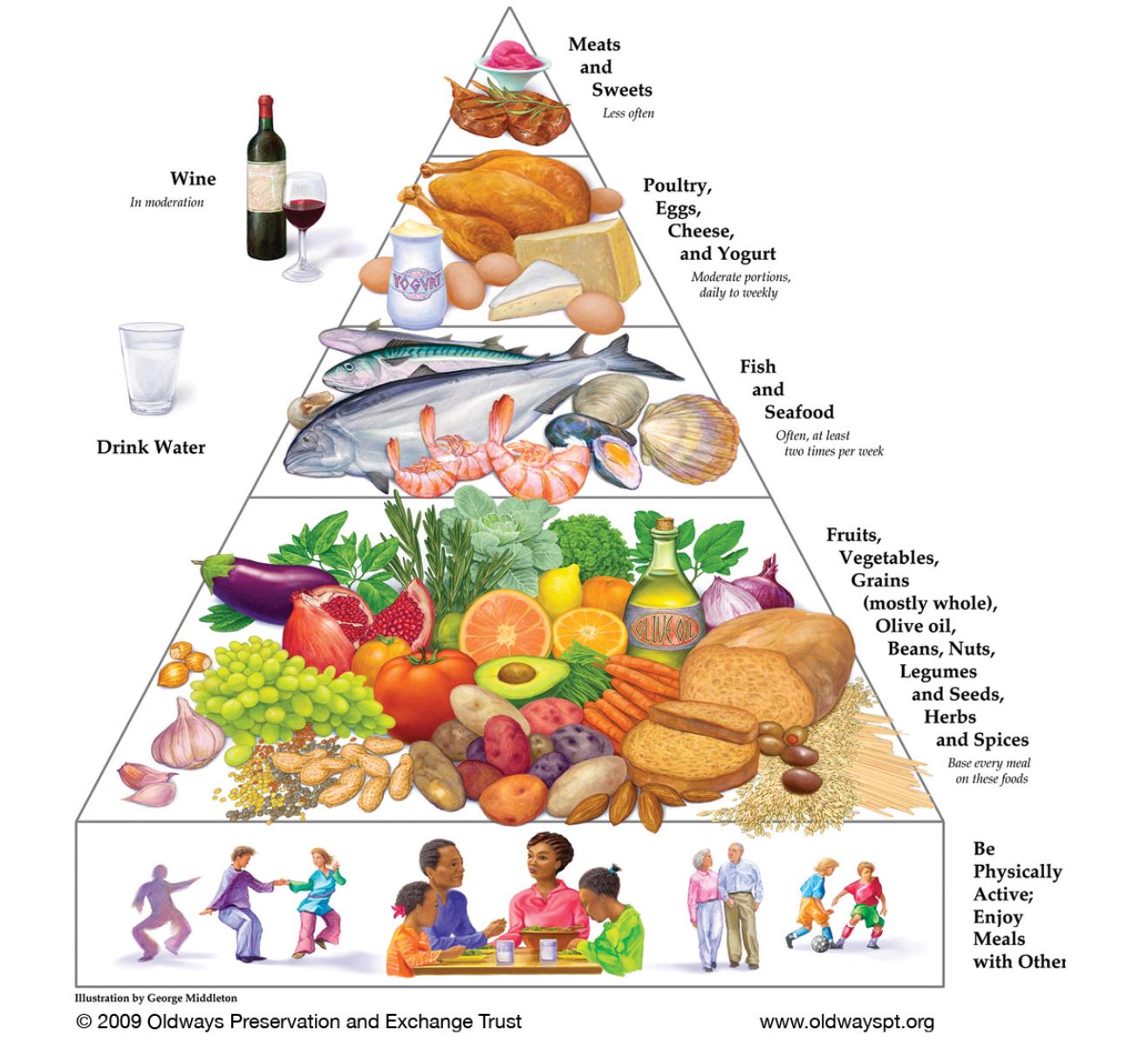Advice on food, what is good for us and what is bad for us, seems to change all the time. One minute we are told red wine is good; and the next any alcohol is bad for us. One minute butter is bad, now we are told that butter is good. We can see this change negatively, reflecting that experts know little; or see this change positively, that experts rely on science and evidence to guide us on what, how and how much we should eat.
A few weeks ago, I attended a seminar delivered by a leading expert on Mediterranean diet (Med Diet), Professor Catherine Itsiopoulos, the new Dean of the School of Health and Biomedical Sciences at RMIT University. The Med Diet has been very popular in Australia. Prof Itsiopoulos’s talk was very enlightening. I had a few of lightbulb moments.
- 35% of daily energy intake is from snacking. This is so revealing. We tend to censor portion size of our meals but forget the snacks we have throughout the day. If anyone wants to reduce weight, the first strategy would be to cut the snacks out of our daily routine or change the types of snacks we have. It will be difficult to do, but awareness is essential, and will lead us to the right path.
- Why Med diet is still considered the healthiest diet when many other forms of diets faded in and out of the picture. Years of lab and human research on Med diet has found it regulating metabolism, reducing inflammation, reducing oxidation, and improving heart and brain health. It benefits those with type II diabetes, heart disease, cancer or degenerative neurological disease.
Prof Itsiopoulos says that true Med diet is a “peasant diet” with little meat, not the ones featured in some Med diet cookbooks where festival food is promoted. The pyramid below highlights the key features of a healthy Med diet.

- Varieties and varieties. Med diet is famous for its many varieties of food: different kinds of vegetables, legumes, spice, herbs, rice, bread, pasta, olive oil, cheese, butter, fish, seafood, chicken, and meat. It is much easier for people to stick to a diet program that allows us to eat all kind of food, than those programs that limits to low-carb food, or all vegetarian diet. Chinese medicine also considers varieties and moderation are the key features of healthy eating.
- Eat with your family or friends. The foundation of the pyramid of Med diet is to eat with friends and family. The Mediterranean people are famous for family orientation and social events, and most of the events are around eating. Have you watched the movie My Big Fat Greek Wedding? How many family gatherings and eating scenes are there? The nutritional benefit of eating with others is backed up by research.
- It is about holistic, and eating fresh and whole food. Catherine says about 70% of older Greeks keep a home vegetable garden. Although some of them may be slightly overweight, their cardiovascular health and blood glucose are excellent. They plant and grow their own vegetables, and eat fresh, whole food. The physical and mental activities going into planting and caring for the plants are enormously rewarding and nourishing. Some of us have no green thumbs, then cooking our own food is also enormously beneficial.
In summary, varieties, whole food, eating with friends or family, planting or cooking our own food, and reducing or removing snacks are the keys for successful and healthy diet. Diet is about food, as well as about everything around food and eating.
Further readings:
- Itsiopoulos, C. (2015) The Mediterranean Diet Cookbook. Pan Macmillan Australia.
Note: This book is specifically written for Australian Audience. pp224.
- Itsiopoulos, C. (2020) The Heart Health Guide. Pan Macmillan Australia. pp 240.
- Mediterranean diet. https://oldwayspt.org/traditional-diets/mediterranean-diet
- Mediterranean Diet & Lifestyle Resources. https://www.mediterraneanliving.com/mediterranean-diet-resources/
